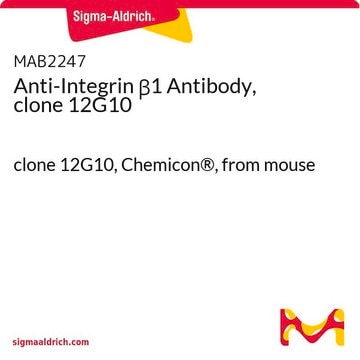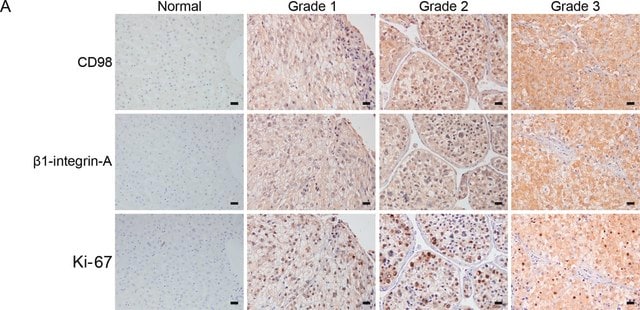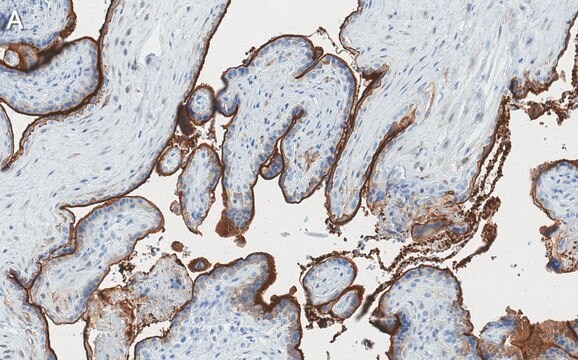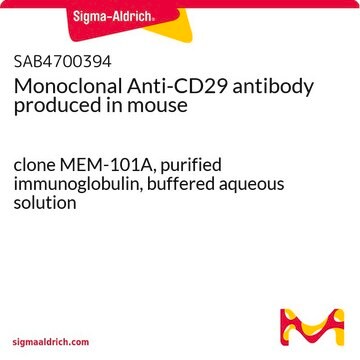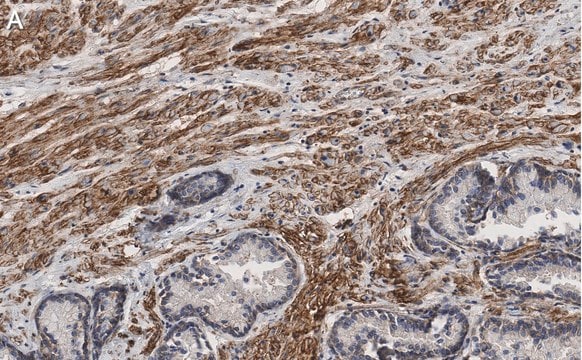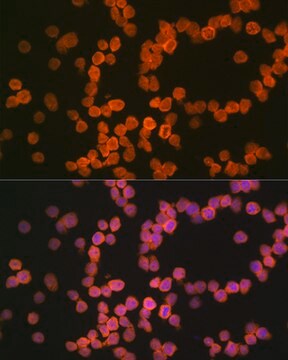MAB2247-I
Anti-Integrin β1 Antibody, clone 12G10
clone 12G10, from mouse
Synonym(s):
Integrin beta-1, CD29, Glycoprotein Iia, GPIIA, Integrin VLA-4 subunit beta, Very late activation protein, beta polypeptide
About This Item
IF
WB
immunofluorescence: suitable
western blot: suitable
Recommended Products
biological source
mouse
Quality Level
antibody form
purified immunoglobulin
antibody product type
primary antibodies
clone
12G10, monoclonal
species reactivity
human
technique(s)
flow cytometry: suitable
immunofluorescence: suitable
western blot: suitable
isotype
IgG1κ
NCBI accession no.
UniProt accession no.
shipped in
wet ice
target post-translational modification
unmodified
Gene Information
human ... ITGB1(3688)
General description
Immunogen
Application
Cell Structure
ECM Proteins
Immunofluorescence Analysis: A representative lot was used in an independent laboratory in mouse lung tissue. (Chen P., et al. (2009). PLoS ONE. 4(8):e6565.)
Quality
Flow Cytometry Analysis: 1 µg of this antibody detected Integrin β1 in HeLa cells.
Target description
Linkage
Physical form
Storage and Stability
Analysis Note
HeLa cells
Other Notes
Disclaimer
Not finding the right product?
Try our Product Selector Tool.
recommended
Storage Class Code
10 - Combustible liquids
WGK
WGK 2
Flash Point(F)
Not applicable
Flash Point(C)
Not applicable
Certificates of Analysis (COA)
Search for Certificates of Analysis (COA) by entering the products Lot/Batch Number. Lot and Batch Numbers can be found on a product’s label following the words ‘Lot’ or ‘Batch’.
Already Own This Product?
Find documentation for the products that you have recently purchased in the Document Library.
Our team of scientists has experience in all areas of research including Life Science, Material Science, Chemical Synthesis, Chromatography, Analytical and many others.
Contact Technical Service